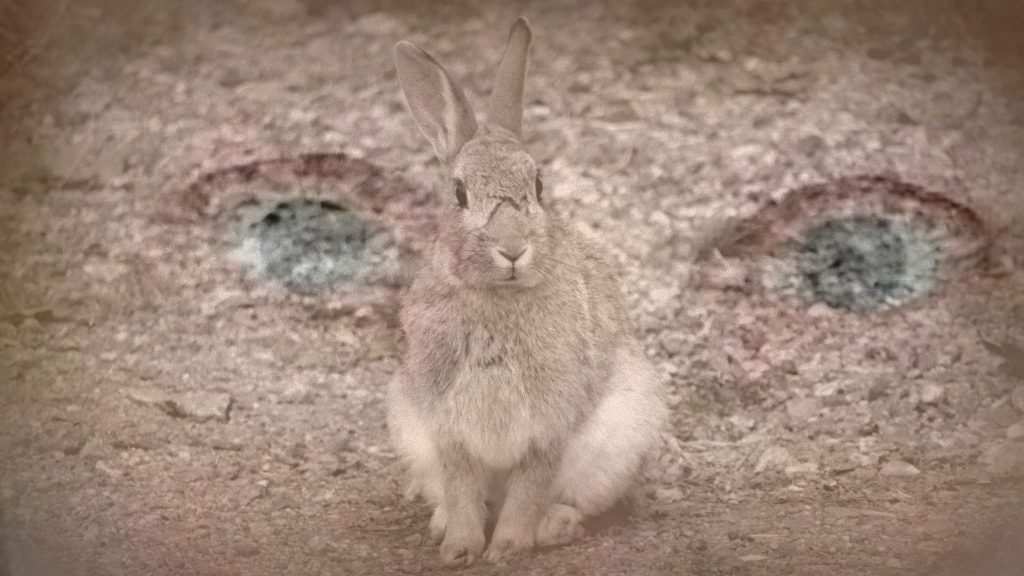Mit allen Augen sieht die Kreatur / das Offene. Nur unsre Augen sind / wie umgekehrt und ganz um sie gestellt / als Fallen, rings um ihren freien Ausgang.
Rainer Maria Rilke1

Rilke designates the human glance as a sovereign gaze that is always setting traps – looking out in order to capture and control what it turns into its objects.
Interspecies resonance requires an encounter between two equal subjects – this concept is encapsulated by the expression: sich auf Augenhöhe begegnen, – ‘meeting at eye level’. According to Rosa2, approaching each other as equals is a basic requirement for any resonant experience to occur.
A trapping gaze does not seek to meet the other as an equal. It aims to capture, fixate and ultimately own the other, seeking to dominate and possess. Therefore, it can be designated as a colonial gaze.
By contrast, I view my work as an exercise in decolonizing wild species, by practicing eye-to-eye encounters and cultivating interspecies resonance.
According to Sundberg (2014), decolonization is not a state that can be asserted, but something that can only be strived for and realized in practice.
Decolonisation is not to be seen as a separate theoretical field, but rather gained through performance. […] It can be seen as a movement within and a way of walking with. (Motta and Porr3 2023, 209; Sundberg4 2014, 40)
In accordance with this concept, my practice is also shaped by the element of movement – in two ways: Firstly, there is the movement of walking through a man-made landscape that is, at the same time and primarily, the land – the habitat – of wild species; and this space is transformed into shared land through the encounter. Secondly, there is the inner movement that occurs during the encounters, which I have suggested can be conceived as a dance.
The aim of the practice is to develop a practical research framework that can be reproduced and applied to other settings and regions with a similar structure.
The overall objective of the MAEL project is to document and raise awareness of the wild species inhabiting the Weinviertel region as an example for a cultural landscape that is simultaneously the habitat of wildlife. This habitat is under constant threat, due to human activities connected to agriculture, hunting, forestry, tourism, and so on. The project aims to highlight the rights of indigenous wildlife with regard to this land and their habitats. This includes their right to territory, food and the freedom to live according to their needs.
- Rilke, Rainer Maria. 1955-66. “Duniser Elegien. Die achte Elegie.” In Sämtliche Werke, Band 1–6, Bd. 1, by Rainer Maria Rilke. dtv. ↩︎
- Rosa, Hartmut. 2016. Resonanz. Eine Soziologie der Weltbeziehung. Suhrkamp. ↩︎
- Motta, Ana Paula, and Martin Porr. 2023. “The jaguar gaze: Is it possible to decolonise human–animal relationships through archaeology?” In Decolonising Animals, edited by Rick De Vos. Sydney University Press. ↩︎
- Sundberg, Johan. 2014. “Decolonising posthumanist geographies.” Cultural Geographies 21 (1): 33–47. ↩︎
